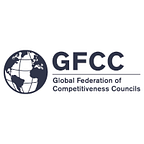Long-Lasting Lessons: Innovations and Initiatives That Endure After COVID-19 — Insights from Prof. Victor Dzau
In 2022, the GFCC and its member, the Japan Science and Technology Agency (JST), launched an initiative called Driving Innovation in Times of Crisis (DITC) to deepen the understanding of crises and gather lessons from historical moments when innovation flourished in the face of adversity. In January of 2024, we launched a series of publications: a white paper on crisis definitions and frameworks and three case studies, uncovering the 9/11 terrorist attacks, the COVID-19 pandemic, and the ongoing armed conflict in Ukraine. This blog post is part of the DITC initiative and an extension of the COVID-19 pandemic case.
In an insightful conversation, I had the pleasure of speaking with Prof. Victor Dzau, President of the National Academy of Medicine (NAM), an internationally acclaimed healthcare leader and scientist. He shared his expertise about innovations that emerged during the COVID-19 pandemic. Throughout the interview, Prof. Dzau provided his valuable perspective on the key lessons learned from the successes and challenges of the pandemic response. Let’s delve into it!
Warp Speed and the Race for Solutions
The recognition of the COVID-19 pandemic in early 2020 ignited Operation Warp Speed (OWS), an extraordinary effort to accelerate the development of vaccines and therapeutics. OWS built upon a foundation of existing structures, including BARDA (Biomedical Advanced Research and Development Authority), leveraging the agency’s expertise and connections to streamline research. Additionally, the pandemic highlighted the importance of adoption; technologies that were already available languished in labs until OWS swiftly translated them into solutions.
A pivotal element of OWS was the use of public-private partnerships (PPPs). Public funding reduced risk for companies, encouraging rapid development and concurrent manufacturing even before safety and efficacy data were fully available. This ‘push-pull’ mechanism significantly accelerated the path to delivering COVID-19 vaccines.
Prof. Dzau believes this PPP model holds tremendous potential beyond emergency situations. Public investment in promising technologies can propel the private sector forward at a much faster pace. It eliminates the need to rely solely on traditional R&D with the hope of eventual market adoption.
Flexibility: Breaking Barriers for Innovation
The UK’s Medicines and Healthcare products Regulatory Agency (MHRA) offers another striking example of innovation unleashed by the pandemic. Their regulatory flexibility was crucial in the rapid discovery and trials for the COVID-19 vaccine. By streamlining approval processes and granting provisional authorization for emergency use, vaccines became available as scientists continued to collect further data. This combined with strong scientific collaboration and government funding, ultimately saved countless lives.
Importantly, the crisis spurred permanent advancements in areas like telemedicine. Expanded scope, relaxed geographic restrictions, and infrastructural investments have made healthcare more accessible and convenient.
Another innovation, the ACTIV PPP, accelerates COVID-19 therapeutics. This collaboration of 20 organizations and 100 scientists is redesigning clinical trials, funding diagnostics, and repurposing existing drugs — further demonstrating the power of focused collaboration.
Global Collaboration: Strength in Unity
Beyond OWS, the ACT-Accelerator initiative demonstrated the power of global collaboration in delivering tests and vaccines to less-resourced countries. It serves as a model for addressing future health crises by bringing together governments, scientists, businesses, and philanthropists to expedite equitable access to critical tools.
ACT-Accelerator’s success has inspired its application to broader health challenges, with a focus on strengthening healthcare systems and improving pandemic preparedness to address future global health threats.
Communication and Trust: A Critical Need
Prof. Dzau emphasizes that the success of COVID-19 vaccines was, however, marred by public distrust fuelled by misinformation and changing guidance. He believes in the importance of early community engagement and transparent communication from the beginning of research trials. Scientists, he argues, need to present what is known and unknown, helping the public understand that science evolves and guidelines change.
The COVID-19 pandemic sparked discussions with our university members which led to the “University 4.0” report series released in 2021. One discussion paper titled “Drivers of Resilience, Prosperity, and Recovery” highlights the critical role universities can play as “translation agents” for society. The concept emphasizes that universities should be recognized as trusted societal actors, particularly during times of crisis.
Beyond the Crisis: Lessons for the Future
While Operation Warp Speed and the rapid development of COVID-19 vaccines were landmark achievements, the pandemic’s impact extended far beyond vaccines, fueling a wide array of innovations that continue to shape healthcare today.
The innovations of the COVID-19 era illustrate the power of public funding and focused PPPs to drive rapid solutions for complex health problems — a model that holds promise even beyond emergencies and healthcare, Prof. Dzau affirms. The pandemic also taught us that innovation must prioritize equity and trust.
The true test lies in applying the lessons learned from the COVID-19 pandemic. The central challenge is translating the same successful innovation mechanisms into contexts without a pressing crisis. How can we maintain the spirit of collaboration and innovation even when there isn’t a clear emergency? Additionally, we must invest public resources wisely and effectively to tackle ongoing challenges. Only when faced with the next major health crisis will we know whether the COVID-19 pandemic ignited lasting transformation in healthcare systems, or if innovations will fade as the urgency recedes.
The GFCC continues to gather lessons from past crises, response mechanisms, and innovations that took place during adversity. In our next publications, the focus will be on Financial Crises. Stay tuned!
Victor J. Dzau, M.D., is the President of the National Academy of Medicine (NAM), formerly the Institute of Medicine (IOM). Dr. Dzau is Chancellor Emeritus and James B. Duke Professor of Medicine at Duke University and the past President and CEO of the Duke University Health System. Previously, Dr. Dzau was the Hershey Professor of Theory and Practice of Medicine and Chairman of Medicine at Harvard Medical School’s Brigham and Women’s Hospital, as well as Chairman of the Department of Medicine at Stanford University.
